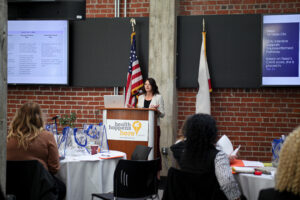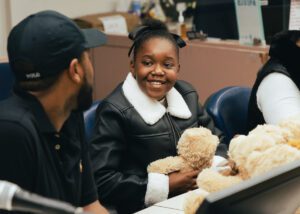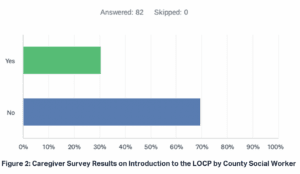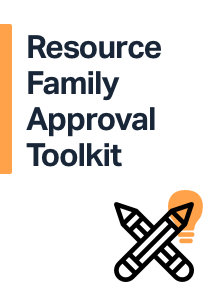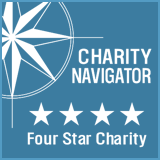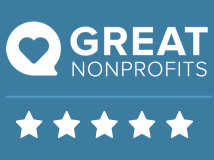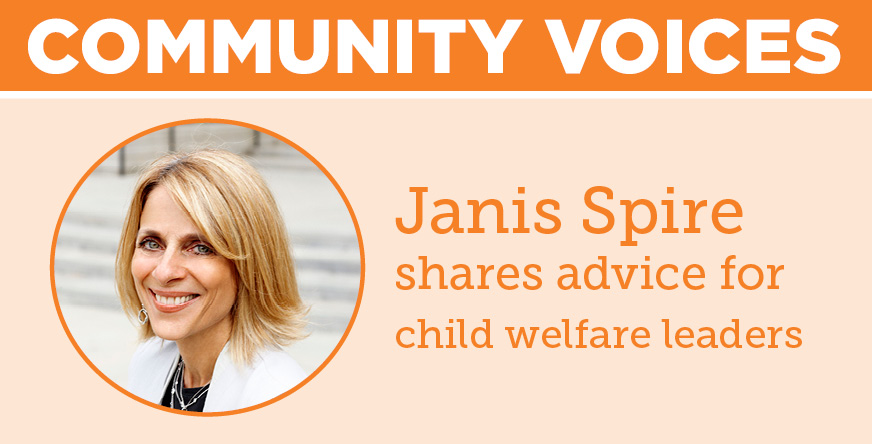 Recently, Los Angeles DCFS announced the search for a new director. We have asked some of our leading child welfare advocates to share their thoughts about the priorities and qualities they hope will factor into the hiring process. This week, we feature our executive director and CEO, Janis Spire. These are her words:
Recently, Los Angeles DCFS announced the search for a new director. We have asked some of our leading child welfare advocates to share their thoughts about the priorities and qualities they hope will factor into the hiring process. This week, we feature our executive director and CEO, Janis Spire. These are her words:
I hope they find someone who is fearless to lead the Department of Child and Family Services in Los Angeles; someone for whom this is not a career move, but rather a matter of vision and passion. We need someone with the skill and conviction to navigate the competing agendas of the various constituencies, who can be cognizant of the regulations, the liabilities, and the politics, but stay accountable to the children and families. We need someone with a fire in their gut who won’t be deterred by the barrage of “nos” when they propose new solutions.
My advice for this person? Don’t be blindsided by all the reasons you are told that you can’t do something. Don’t allow the fact that you answer to five different supervisors, the unions, the court and counsel, and the media to cause you to become reactive. Find all the things that you can do.
I want to see the new director of DCFS create a culture that can respond to the unique needs and circumstances of individuals. We need someone with the leadership skills to create a system capable of balancing the critical goals of prevention, reunification, and stability. Fragile families and vulnerable young people need a safety net that can meet them where they are and help them to recover.
DCFS is charged with deciding when a child must enter foster care, and when that happens, they take on a tremendous responsibility with regard to that child, akin to the role a parent is supposed to play. Every parent knows there is no one-size-fits-all approach to meeting the needs of a developing young person. The answer is caseworkers who are connected to the child and familiar with the community surrounding the child: their foster family, their school, their healthcare provider. The caseworker should be the quarterback, the air traffic controller who knows all of the things that child needs, and follows through to make sure those needs are met. If we had more of that we’d have fewer kids aging out, fewer kids bounced around to too many different schools and placements.
We need a child welfare system that cherishes the families who step up for kids in foster care and recognizes that these resource families are key to supporting the recovery of the child and promoting healthy attachment. So many of our caregivers are open-hearted people who are doing a selfless thing for all the right reasons. We have to be more humanistic in how we treat these families and weed out the ones who are not qualified to serve as resource families, while really partnering with the ones who are.
My final advice is this: partner with advocates and the court. The relationship to children’s advocates shouldn’t be adversarial. Leverage advocacy organizations to access state and federal funds and protect the scarce funds we already receive. Let us help you protect and rebuild the social safety net. Use advocates to help you hear and heed the voices of families who are struggling to make sense of the system. Advocacy organizations are ready to help the agency work in concert with state and local partners so that we can improve the lives of children and families in the system in a holistic, coordinated way. We can help you. We want to help you. There is so much more that we can accomplish together.


